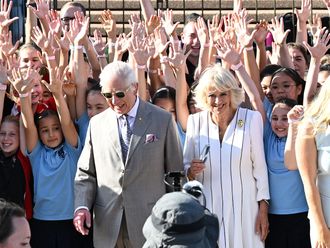Dhaka: Nobel Laureate Professor Mohammad Yunus yesterday sought a review of an apex court verdict that unseated him earlier this year from his position as the chief of the Grameen Bank, the pioneering micro lending agency he founded three decades ago, his lawyers said.
"We have filed a petition before the Appellate Division of the Supreme Court seeking it to review its own verdict in May this year on ‘grounds of errors of law'," Yunus's lawyer Sarah Hussain told Gulf News.
She said the apex court judgment was full of errors in terms of interpretation of law but declined to ‘speculate' if the review could restore Yunus's position as the Grameen Bank director general.
Yunus, aged 70, whose experiment of poor men's banking earned Bangladesh the repute of being the home of micro credit and himself the Nobel Peace Prize along with the Grameen Bank, stepped down as Grameen's executive chief on May 13.
His resignation came after he lost his final legal battle in the apex court to thwart a Bangladesh Bank decision removing him from the position earlier against the backdrop of his protracted dispute with Prime Minister Shaikh Hasina's government.
Appointment faulty
A massive support network of the country's civil society and the international community rallied behind Yunus during his troubles and the United States even warned Dhaka-Washington ties could be at stake unless the government reached an amicable settlement with him.
Bangladesh Bank, which is nominally independent from the government, fired Yunus on March 2 this year as the central bank found that his 2000 appointment as the Grameen Bank's executive chief was faulty because the central bank's mandatory approval was not obtained at that time.
The government has a 25 per cent stake in Grameen Bank which employs 24,000 people and provides collateral-free loans to eight million borrowers, mostly rural women.
Analysts, however, said the central bank decision was the outcome of the government reservation against him as Yunus's troubles stem from 2007 when he announced the formation of a political party.
The idea was unwelcome to Prime Minister Shaikh Hasina and her archrival Khalida Zia of Bangladesh Nationalist Party (BNP), while he himself abandoned the idea of joining politics within months.












